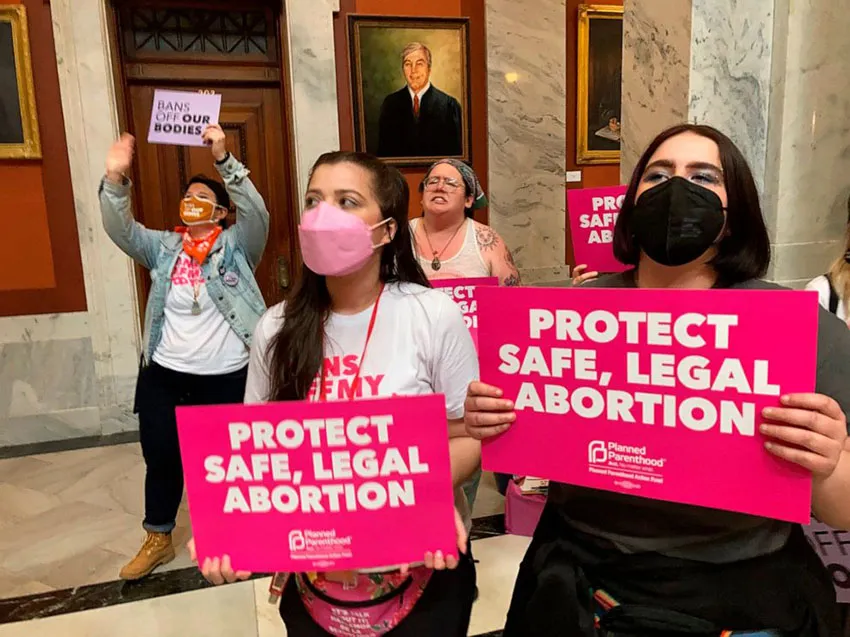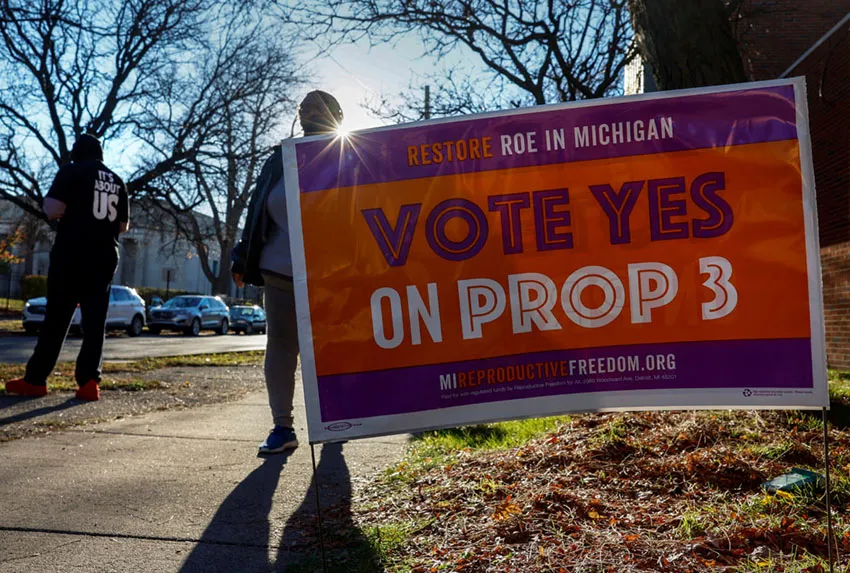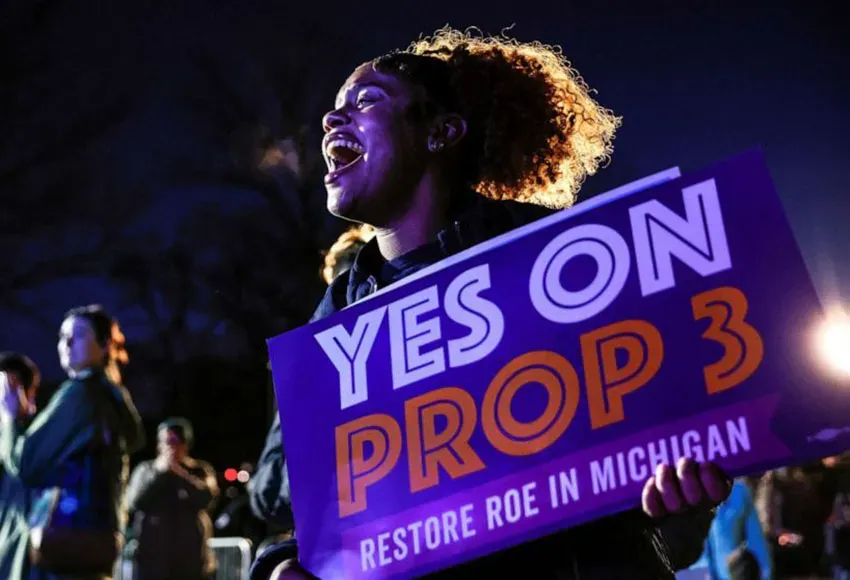Voters in four states spanning the red-blue political spectrum voted decisively in favor of protecting reproductive rights and against measures banning abortion.
Advocates on both sides of the abortion debate zeroed in on the midterm elections, hoping to use the fallout from the Supreme Court's Dobbs decision to pass referenda and shore up support for their respective candidates. While complete results are not yet in, it seems that ultra-right forces decisively failed to win the argument.
"To see the court sort of step in in this way and overturn rights people thought were secure, then means that people see that they need their policymakers to reflect their actual values," Elizabeth Nash, lead state policy analyst for the Guttmacher Institute, told Axios.
Without Roe v. Wade, abortion has become "part of the political discourse in a way that it just hasn't been" in the past, Nash added.

Kentucky
"Kentucky voters rejected a ballot measure aimed at denying any constitutional protections for abortion, handing a victory to abortion-rights supporters who have seen access to the procedure eroded by Republican lawmakers in the deeply red state," CBS News reported.
The outcome surprised Kentucky's Republican Party, which controls the state's legislature. GOP lawmakers put the constitutional amendment on the ballot, hoping for voter approval of their near-total ban on abortions in the state.
The victory may – at this point – be only a moral one, however. The legislature's abortion ban remains on the books, and if it survives a lawsuit currently before the state Supreme Court, abortions will still be illegal in Kentucky.

Michigan
Voters approved a constitutional amendment to create a right to "reproductive freedom," including protecting abortion access in the state, the Associated Press reported.
The amendment – which takes effect 45 days after the election – effectively bars enforcement of the state's 1931 pre-Roe abortion ban, but it does not repeal it, according to Steven Liedel, legal counsel for Reproductive Freedom for All, which campaigned in favor of the amendment.
In order for a law to be repealed in Michigan, the state legislature must take action, citizens could begin the initiative process to reject the law, or there could be some executive branch action, such as a notice from the state's attorney general.
The petition to add the amendment to the ballot earned the most signatures of any ballot initiative in state history.
California
Voters in California – which already has a law protecting abortion before viability – approved a state constitutional amendment, guaranteeing residents' "fundamental right to choose to have an abortion," the AP reported.
The amendment protects an individual's reproductive autonomy, stating that "[t]he state shall not deny or interfere with an individual's reproductive freedom in their most intimate decisions," which includes getting an abortion and using contraceptives.
Vermont
Voters overwhelmingly backed adding an amendment that protects abortion access under the state's constitution, the AP said.
The amendment states that "an individual's right to personal reproductive autonomy is central to the liberty and dignity to determine one's own life course and shall not be denied or infringed unless justified by a compelling State interest achieved by the least restrictive means."
What now?
While the US Supreme Court's Dobbs decision removes the constitutional protections for abortion enshrined in Roe, it does not remove the federal government from the abortion debate or the rights of states to set their own abortion polices.
If Republicans get control of one of both houses of Congress, they will almost certainly introduce legislation to ban abortion nationwide. In that case, the Supreme Court will equally certainly have to decide if federal law trumps state constitutional guarantees of abortion rights.


